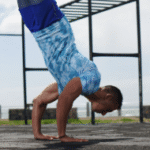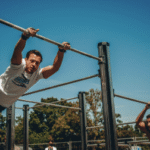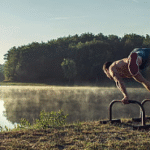How to Vet and Interview a Potential Private Calisthenics Instructor
In a vast and diverse city like Houston, many individuals offer personal training services. However, not all possess the specialized knowledge, experience, and teaching acumen required for effective calisthenics instruction, especially for complex skills. A meticulous vetting and interview process helps you to:
Ensure Safety: Prevent injuries by confirming the coach’s deep of biomechanics and proper progressions.
Guarantee Effectiveness: Secure a trainer who can truly accelerate your results and help you achieve specific calisthenics feats.
Optimize Your Investment: Maximize the return on your time and money by choosing a highly qualified professional.
Find Your “Perfect Match”: Establish a strong rapport and a productive coaching relationship.
—
Part 1: The Vetting Process – Research Before the Interview (Your Pre-Screening)
Before you even schedule a consultation, do your homework. This pre-screening helps you create a shortlist of qualified candidates.
- Verify Core Credentials (The Foundation of Knowledge):
NCCA-Accredited General Personal Training Certification: This is the baseline. Look for certifications from reputable organizations like NASM (National Academy of Sports Medicine), ACE (American Council on Exercise), ACSM (American College of Sports Medicine), or NSCA (National Strength and Conditioning Association). NCCA accreditation ensures rigorous standards of knowledge in anatomy, physiology, biomechanics, and program design.
Specialized Calisthenics Certifications & Background: This is CRUCIAL for calisthenics. General CPTs may lack the nuanced knowledge of bodyweight progressions. Look for:
PCC (Progressive Calisthenics Certification) by Al & Danny Kavadlo (Dragon Door): Highly regarded in the calisthenics community, focusing on systematic progressions.
GymnasticBodies (Coach Certifications/Methodology by Coach Christopher Sommer): Extremely rigorous, emphasizing gymnastics strength and conditioning principles.
WSWCF Academy (World Street Workout and Calisthenics Federation) Calisthenics Trainer Certification: Internationally recognized.
Participation in reputable calisthenics workshops (e.g., Handstand Nation, School of Calisthenics).
CPR/AED and First Aid Certification: Absolutely mandatory. Ensure they are current.
How to Verify: Check their website’s “About” or “Certifications” page. Don’t hesitate to ask for copies or verification numbers.
- Assess Specialization and Experience (The Proof of Expertise):
Explicit Focus: Does their marketing, website, or social media explicitly state a focus on calisthenics, bodyweight training, or gymnastics strength?
Years of Experience: How long have they been coaching calisthenics specifically? (Not just general fitness).
Client Results & Portfolio: Look for testimonials, before/after photos, or videos of their clients performing calisthenics skills. Do these results align with your goals? (e.g., client handstands, muscle-ups).
Personal Practice: Does the coach actively train calisthenics themselves? Their own proficiency and dedication can indicate a deeper of the discipline. Check their social media.
- Check Client Testimonials & Reviews (The Client Perspective):
Beyond Aggregate Stars: Look for detailed written reviews on their website, social media, or other platforms.
Specificity: Do reviews mention their effectiveness in teaching calisthenics skills, improving form, preventing injuries, or achieving specific bodyweight goals? Beware of generic praise (“great trainer,” “motivates me”).
- Evaluate Online Presence/Portfolio (The Digital Footprint):
Professional Website/Social Media: A well-maintained online presence reflects professionalism.
Videos of Coaching: Look for videos where they are actively coaching clients. Observe their teaching style, how they provide cues, and their interaction.
Content Creation: Do they write articles or create content about calisthenics? This can demonstrate deep knowledge.
—
Part 2: The Interview (Initial Consultation) – Questions to Ask & Observations to Make
Once you have a shortlist, schedule an initial consultation (many reputable coaches in Houston offer a complimentary one). This is your opportunity for direct interaction.
- Opening the Conversation: Your Needs & Goals
- “Aqui estão meus objetivos específicos para calisthenics (e.g., aprender handstand, fazer 10 muscle-ups, evitar dores no ombro). Qual a sua experiência em ajudar clientes com metas e desafios como os meus?” (Here are my specific calisthenics goals [e.g., learn a handstand, do 10 muscle-ups, avoid shoulder pain]. What is your experience helping clients with goals and challenges like mine?)
- “Qual é o seu processo de avaliação inicial para um novo cliente de calisthenics?” (What is your initial assessment process for a new calisthenics client?)
Observation: A thorough assessment should involve discussion of health history, movement screening (e.g., overhead squat, joint rotations), basic strength tests (e.g., max push-ups, pull-ups), and mobility assessment (e.g., wrist extension, shoulder flexion). For online coaching, ask how they use video for this.
- Questions About Their Training Methodology & Philosophy (The “How”):
- “Qual é a sua filosofia geral de coaching para calisthenics? Você foca mais em força, habilidade, mobilidade, ou uma combinação?” (What is your overall calisthenics coaching philosophy? Do you focus more on strength, skill, mobility, or a combination?)
Observation: Look for alignment with your own priorities.
- “Como você projeta programas personalizados para calisthenics? Você usa periodização? Como você adapta para diferentes tipos de corpo ou lesões?” (How do you design personalized calisthenics programs? Do you use periodization? How do you adapt for different body types or injuries?)
Why it’s important: Programs should be custom and dynamic. They should explain how they adjust volume, intensity, and exercise selection over time. For injuries, they should mention medical clearance and collaboration with PTs.
- “Como você fornece correção de forma e feedback durante as sessões? (Para sessões online, como você usa análise de vídeo para isso?)” (How do you provide form correction and feedback during sessions? (For online sessions, how do you use video analysis for this?))
Why it’s important: This is critical. Listen for details about verbal cues, tactile cues (in-person), and the specificity/timeliness of video analysis feedback.
- “Qual é a sua abordagem para integrar mobilidade, nutrição e recuperação (sono, descanso) no treinamento de calisthenics?” (What is your approach to integrating mobility, nutrition, and recovery (sleep, rest) into calisthenics training?)
Why it’s important: A holistic approach leads to better and safer results.
- “Como você lida com platôs ou falta de progresso em calisthenics? Quais são suas estratégias para quebrar essas barreiras?” (How do you handle plateaus or lack of progress in calisthenics? What are your strategies for breaking through these barriers?)
Why it’s important: Shows their problem-solving skills and adaptive programming.
- Questions About Logistics & Practicalities (The “Where, When, How Much”):
- “Onde você conduz suas sessões privadas de calisthenics em Houston?” (Where do you conduct your private calisthenics sessions in Houston?)
Why it’s important: Clarify if it’s at their studio, a commercial gym (do you need a membership?), Houston public parks (e.g., Memorial Park, Buffalo Bayou Park), your home, or entirely online.
- “Qual é a sua estrutura de preços para sessões privadas de calisthenics (por hora, por pacote, mensal)? Existem taxas adicionais ou ocultas?” (What is your pricing structure for private calisthenics sessions (hourly, packages, monthly)? Are there any additional or hidden fees?)
Why it’s important: Get clear, transparent pricing.
- “Qual é a sua disponibilidade típica e como funciona o processo de agendamento?” (What is your typical availability and how does the scheduling process work?)
- “Qual é a sua política de cancelamento e reagendamento?” (What is your cancellation and rescheduling policy?)
- “Como você rastreia o progresso do cliente em calisthenics?” (How do you track client progress in calisthenics?)
Why it’s important: Look for objective metrics (reps, sets, hold times, skill progression) and regular assessments.
- “Como você se comunica com os clientes fora das sessões agendadas?” (How do you communicate with clients outside of scheduled sessions?)
Why it’s important: Understand how you can ask questions or report feedback between workouts.
- Assessing Compatibility (Beyond Words):
Listen Actively: Does the coach genuinely listen to your goals and concerns?
Observe Communication Style: Are they clear, patient, encouraging, and knowledgeable?
Assess Rapport: Do you feel comfortable and trusting in their presence? This “gut feeling” is vital for a long-term partnership.
Trial Session (If Offered): This is your best opportunity to experience their coaching firsthand and truly assess if they are your perfect match.
—
Part 3: Final Steps – Making Your Informed Decision
After your vetting and interviews, compare your shortlisted coaches based on all the information gathered.
Align with Your Priorities: Does the coach’s expertise, philosophy, and logistics align with your non-negotiables (goals, budget, environment)?
Review Contract Details: Ensure all terms, pricing, and services are clearly outlined before signing.
Trust Your Gut: Ultimately, choose the coach with whom you feel the strongest connection and confidence.
In conclusion, a meticulous vetting and interview process, armed with the right questions, is the ultimate guide to finding the perfect private calisthenics instructor in Houston. This ensures your investment leads to safe, accelerated progress, and genuine mastery of your body.

How to Vet and Interview a Potential Private Calisthenics Instructor
Route
Calisthenics Gym Houston Functional Bodyweight Training
Secondary phone: (346) 483-3195
Email: info@calisthenicsclubhouston.com
URL: https://calisthenicsclubhouston.com/
Monday 6:00 AM - 7:00 PM Tuesday 6:00 AM - 7:00 PM Wednesday 6:00 AM - 7:00 PM Thursday 6:00 AM - 7:00 PM Friday 12:00 PM - 6:30 PM Saturday 9:45 AM - 12:00 PM Sunday 3:00 PM - 5:00 PM





